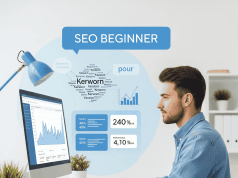In 2025, social media continues to be a cornerstone of successful marketing strategies. With the ever-evolving digital landscape, businesses must choose the right platforms to effectively engage their target audience, enhance brand visibility, and drive conversions. Here’s a look at the top social media marketing platforms to consider for your business this year.
1. Facebook
Despite the emergence of newer platforms, Facebook remains a giant in the social media landscape. With over 2.9 billion monthly active users, it offers unparalleled access to a diverse audience.
Key Features:
- Ads Manager: Powerful targeting options to reach specific demographics, interests, and behaviors.
- Groups and Communities: Foster engagement and build a loyal customer base.
- Marketplace: Ideal for e-commerce businesses to sell directly to consumers.
Best Practices:
- Create engaging, shareable content.
- Utilize Facebook Live for real-time engagement.
- Use retargeting ads to convert potential customers.
2. Instagram
Instagram, with its emphasis on visual storytelling, is particularly effective for brands in lifestyle, fashion, food, and travel sectors. As a platform owned by Facebook, it also benefits from robust advertising options.
Key Features:
- Stories and Reels: Short, engaging video content to capture attention.
- Shopping Features: Integrate e-commerce directly into your posts.
- Influencer Marketing: Connect with influencers to reach broader audiences.
Best Practices:
- Use high-quality, eye-catching visuals.
- Leverage user-generated content to build trust.
- Regularly engage with followers through comments and DMs.
3. LinkedIn
LinkedIn is the go-to platform for B2B marketing. With over 900 million users, it is essential for businesses targeting professionals and decision-makers.
Key Features:
- Networking Opportunities: Connect with industry leaders and potential partners.
- Content Publishing: Share in-depth articles to establish authority.
- LinkedIn Ads: Target specific industries and job titles.
Best Practices:
- Build a strong company page and share industry insights.
- Foster partnerships and collaborations with other professionals.
- Use LinkedIn Groups to engage with niche communities.
4. Twitter
Twitter allows for real-time communication and trend engagement, making it effective for brands looking to create conversations around their products or services.
Key Features:
- Trending Topics: Engage with current events and trending hashtags.
- Twitter Ads: Promote tweets to gain visibility.
- Lists: Organize your feed to track industry leaders and competitors.
Best Practices:
- Post regularly to stay in conversations.
- Use polls and questions to increase engagement.
- Leverage Twitter Chats for direct interaction.
5. TikTok
TikTok has rapidly grown into a powerful platform, especially among younger audiences. Its unique format of short, creative videos allows brands to craft fun and engaging content.
Key Features:
- Viral Content Opportunities: Create trends that can rapidly increase brand visibility.
- In-App Ads: Promote your content through targeted ads and challenges.
- Authentic Engagement: Encourage user participation through challenges and hashtags.
Best Practices:
- Stay authentic and embrace creativity.
- Collaborate with popular TikTok creators for wider reach.
- Use analytics to track engagement and refine your strategy.
6. Pinterest
For businesses in the retail, fashion, and home improvement sectors, Pinterest is invaluable. Users come to Pinterest searching for inspiration, making it a unique platform for conversions.
Key Features:
- Visual Discovery: Users can discover and save ideas related to their interests.
- Rich Pins: Enhance your content with additional information.
- Targeted Ads: Promote your Pins to specific demographics and interests.
Best Practices:
- Create visually appealing Pins with strong call-to-actions.
- Optimize your boards for search queries.
- Engage with Pinterest community through comments and collaborations.
Conclusion
In 2025, leveraging the right social media marketing platforms can significantly enhance your brand’s visibility and engagement. Understanding the unique features and user demographics of each platform will enable you to tailor your approach effectively. As you navigate this dynamic landscape, remember that adaptability, creativity, and genuine engagement are key to your social media success. By utilizing these platforms strategically, you can take your business to new heights.









